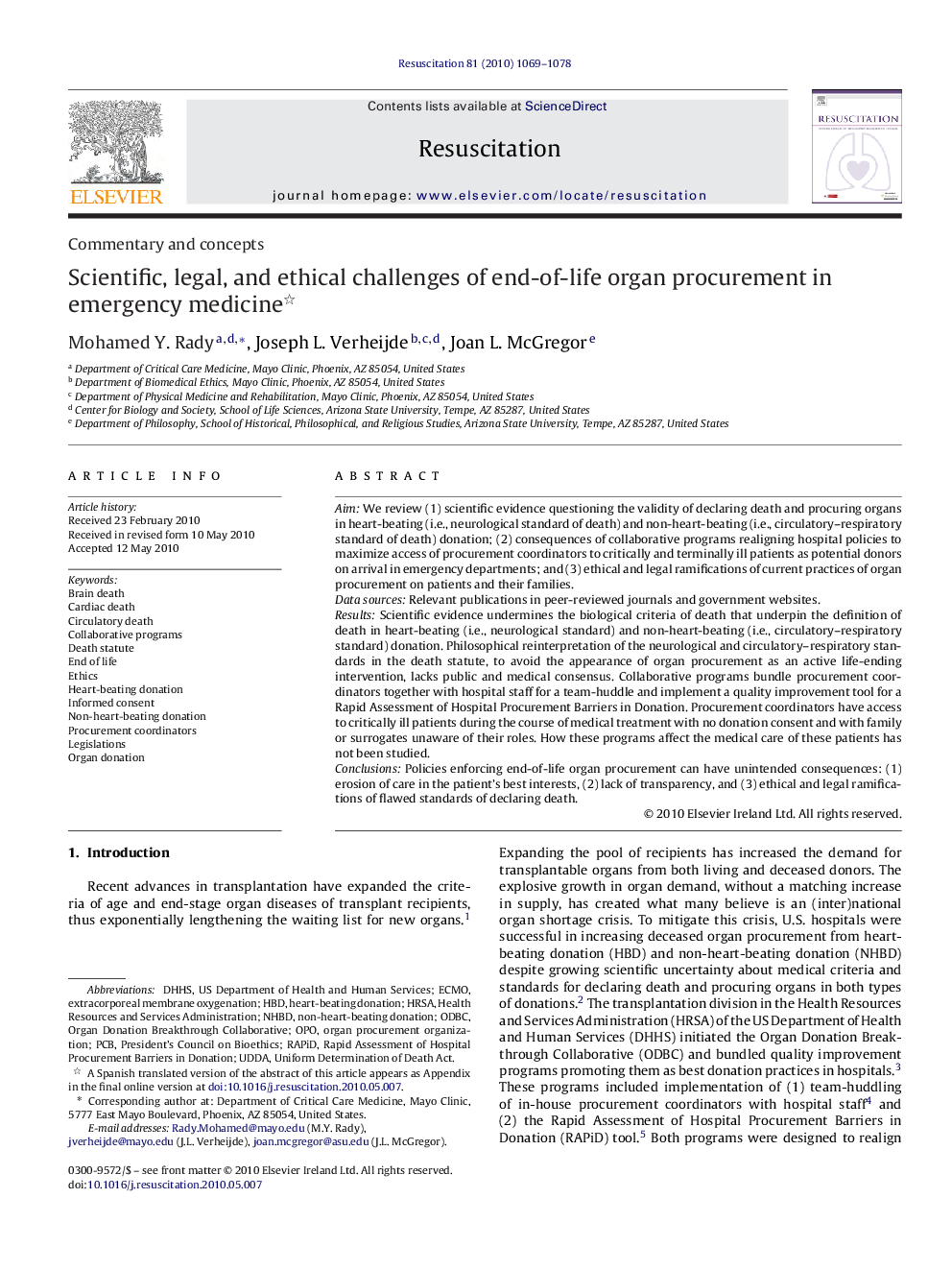| کد مقاله | کد نشریه | سال انتشار | مقاله انگلیسی | نسخه تمام متن |
|---|---|---|---|---|
| 3009295 | 1181483 | 2010 | 10 صفحه PDF | دانلود رایگان |

AimWe review (1) scientific evidence questioning the validity of declaring death and procuring organs in heart-beating (i.e., neurological standard of death) and non-heart-beating (i.e., circulatory–respiratory standard of death) donation; (2) consequences of collaborative programs realigning hospital policies to maximize access of procurement coordinators to critically and terminally ill patients as potential donors on arrival in emergency departments; and (3) ethical and legal ramifications of current practices of organ procurement on patients and their families.Data sourcesRelevant publications in peer-reviewed journals and government websites.ResultsScientific evidence undermines the biological criteria of death that underpin the definition of death in heart-beating (i.e., neurological standard) and non-heart-beating (i.e., circulatory–respiratory standard) donation. Philosophical reinterpretation of the neurological and circulatory–respiratory standards in the death statute, to avoid the appearance of organ procurement as an active life-ending intervention, lacks public and medical consensus. Collaborative programs bundle procurement coordinators together with hospital staff for a team-huddle and implement a quality improvement tool for a Rapid Assessment of Hospital Procurement Barriers in Donation. Procurement coordinators have access to critically ill patients during the course of medical treatment with no donation consent and with family or surrogates unaware of their roles. How these programs affect the medical care of these patients has not been studied.ConclusionsPolicies enforcing end-of-life organ procurement can have unintended consequences: (1) erosion of care in the patient's best interests, (2) lack of transparency, and (3) ethical and legal ramifications of flawed standards of declaring death.
Journal: Resuscitation - Volume 81, Issue 9, September 2010, Pages 1069–1078